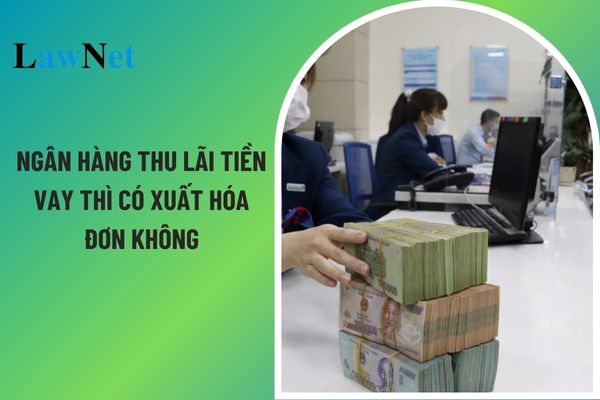Shall banks in Vietnam issue invoices for loan interest collection?
Shall banks in Vietnam issue invoices for loan interest collection?
Based on Official Dispatch 1332/TCT-DNL in 2014 regarding records for loan interest collection, the Bank provides guidance as follows:
According to Official Dispatch No. 1005/TCT-CS dated March 28, 2011, from the General Department of Taxation concerning guidance:
"... In cases where fee collection records in the service activities of banks and credit institutions are transaction records printed from the system and contain content consistent with international practices (transaction information, fee details are pre-constructed in the transaction program; upon transaction completion, the record displays transaction content and necessary criteria as per record policies, tax information (transaction amount, tax rate, VAT amount, total payment amount) are fully displayed on the record, and each record has a unique transaction reference ensuring singularity in the entire system, meeting management requirements and aligning with the objective of enhancing enterprise autonomy, banks and credit institutions are allowed to use current transaction records as both VAT invoices or sales invoices under the name "Transaction record"..."
According to Official Dispatch 39989/CT-TTHT in 2018 providing guidance on issues regarding value-added tax and invoices for bank activities as follows:
Based on Circular No. 39/2014/TT-BTC dated March 31, 2014, from the Ministry of Finance, guiding the issuance of invoices for the sale of goods and services in certain specified cases:
+ Article 16 regulations on issuing invoices:
"Article 16. Issuing Invoices
- Principles for issuing invoices
a) Organizations, households, and individuals engaged in business are only allowed to issue and give to buyers the types of invoices specified in this Circular.
+ At Point 2.1 Appendix 4 regulations:
“2. In some cases, the use and recording of invoices and records are as follows:
2.1. Organizations that pay taxes by the credit method selling goods and services not subject to VAT, exempt from VAT shall use VAT invoices. On the VAT invoice, only the sale price line as the payment price, the tax rate line; the VAT amount should not be recorded and should be crossed out."
According to the above regulations, when banks collect interest from loans, they are not required to issue value-added tax (VAT) invoices in the conventional manner but instead can utilize loan interest collection records. Such records, if valid, are still considered invoices to ensure the legality of the financial transaction.
For loan interest paid by the customer, this is deemed as revenue from the bank's credit activity. According to the regulations, banks may not need to issue VAT invoices for this loan interest but may use lawful interest collection records instead. However, if requested by the customer or for declaration purposes, the bank can still issue an invoice for this loan interest.

Shall banks in Vietnam issue invoices for loan interest collection? (Image from Internet)
What are prohibited acts related to invoices and records in Vietnam?
According to Article 4 of Decree 123/2020/ND-CP, specific prohibited acts related to invoices and records are as follows:
[1] For tax officials
- Causing nuisance and difficulties for organizations and individuals visiting to buy invoices and records;
- Engaging in cover-up or collusion with organizations and individuals to use illegal invoices and records;
- Accepting bribes during inspection and examination of invoices.
[2] For organizations, individuals selling and providing goods, services, and those with related rights and obligations
- Engaging in fraudulent activities such as using illegal invoices or illegal use of invoices;
- Obstructing tax officials performing official duties, specifically acts that harm the health and dignity of tax officials during the inspection and examination of invoices and records;
- Unauthorized access, alteration, or destruction of invoice and record information systems;
- Bribing or engaging in other acts related to invoices and records for illegal gain.
What are requirements of authenticated e-invoice in Vietnam?
According to Clause 2, Article 17 of Decree 123/2020/ND-CP, authenticated e-invoices must meet the following requirements:
- Complete electronic invoice content as prescribed in Article 10 of Decree 123/2020/ND-CP.
- Correct format for electronic invoices as prescribed in Article 12 of Decree 123/2020/ND-CP.
- Accurate registration information as prescribed in Article 15 of Decree 123/2020/ND-CP.
- Not in the case of discontinuation of using electronic invoices with a tax authority's code as prescribed in Clause 1, Article 16 of Decree 123/2020/ND-CP.

